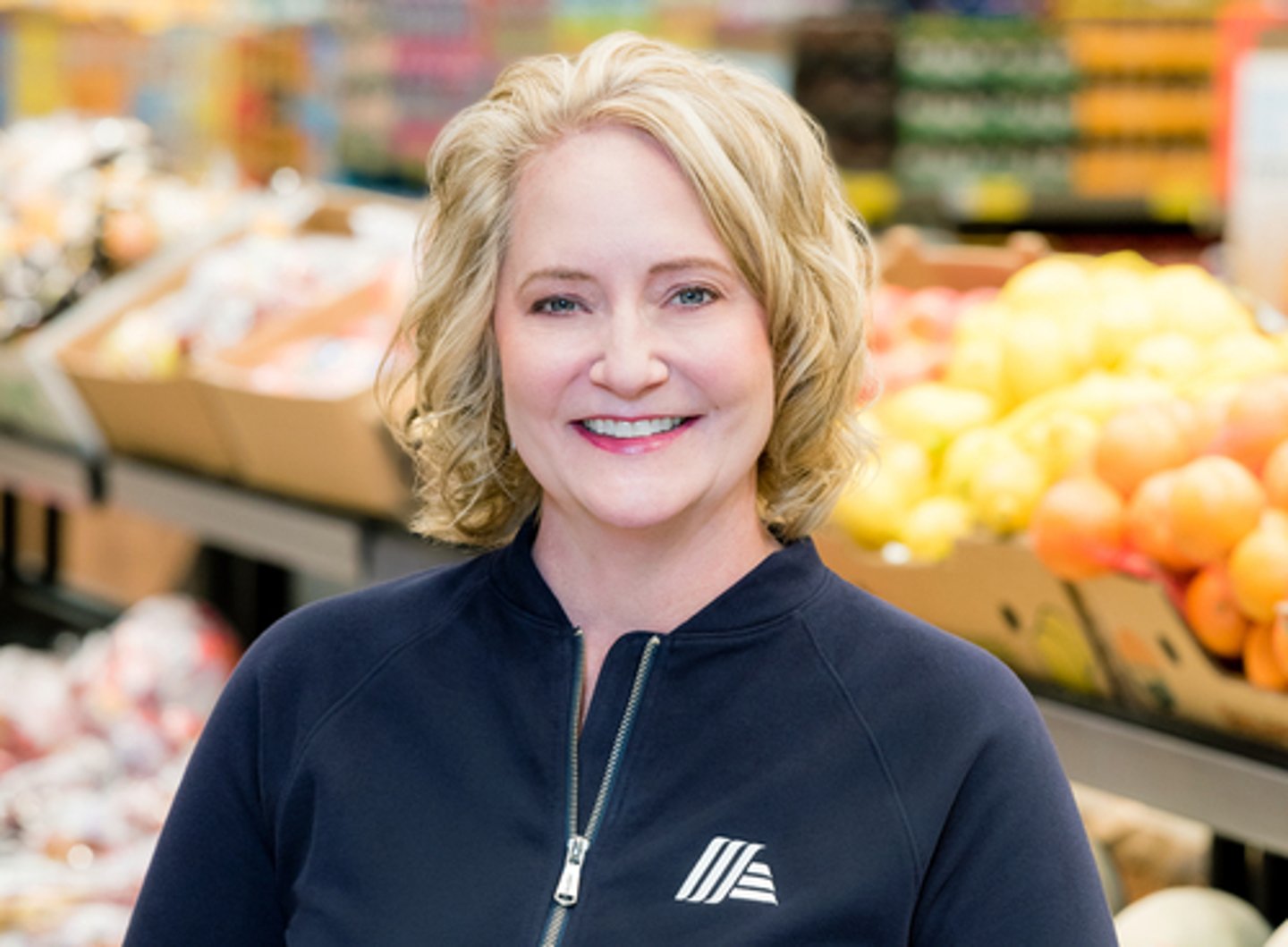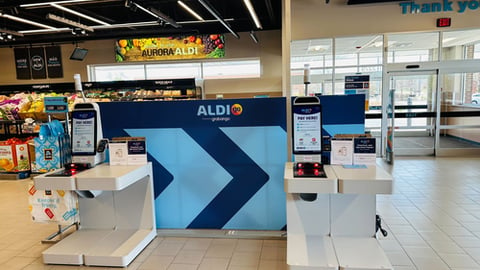As Aldi Grows The Grocer Works To Strengthen Supplier Partnerships
The next five years will be a period of robust growth for Aldi, but as the grocer expands its footprint by some 30% by 2028 it is also working to further strengthen supplier relationships.
During its recent Supplier Summit, leadership with the discount grocer outlined its growth plans including investing more than $9 billion to open 800 new stores in the coming years. Company officials also noted the added pressure from growth in private label product sales, driven by demand from its expanding customer base along with competitor retailers continually growing their store brand assortments.
“We will continue to place a high value on our partnerships so we can deliver quality products at the lowest prices,” said Jason Hart, CEO of Aldi USA. “One-quarter of U.S. households are now shopping at Aldi. That is twice as much as six years ago.”
As the grocer embarks on its expansion plans, it will strengthen its presence in the Midwest, expand its footprint across the Northeast, and grow in the West. This includes new locations in California and Arizona in Phoenix and expanding its store count in cities such as Las Vegas where Aldi currently has no presence.
“We will continue to place a high value on our partnerships so we can deliver quality products at the lowest prices. One-quarter of U.S. households are now shopping at Aldi. That is twice as much as six years ago.”
— Jason Hart, Aldi
The company’s growth will also be buoyed by its acquisition of Southeastern Grocers (SEG) and its Winn-Dixie and Harveys Supermarket banners. Hart said a significant number of SEG stores will convert to the Aldi format, adding that once those conversions are complete, a “meaningful amount” of those stores will continue to operate under their current banners.
“The Southeast is a fast-growing region where we've already experienced much success and look forward to seeing Aldi expand its presence in this area. We are incredibly confident in our business,” he added.
Aldi’s store growth, along with growing consumer demand for private label products, and competitor retailers expanding their store brand assortments will make developing and maintaining strong vendor relationships imperative. Company officials noted that private label growth over the past decade has outpaced national brand growth, and they’re confident the consumer appetite for private label products will remain strong even as inflation wanes.
“The reality is 90% of customers currently say they would be somewhat or very likely to continue buying private label even if inflation becomes less of a factor,” said Dave Rinaldo, president of Aldi USA.
“The beauty of being an Aldi supplier is that in 90% of our stores, you are not competing against another brand for shelf space or profits. When you're the private label mustard supplier at an Aldi store, you are the only game in town, the only brand within the category."
— Joan Kavanaugh, Aldi
Maintaining inventory for a grocer that today has more than 2,000 stores with more on the way is something Joan Kavanaugh, Aldi’s vice president of National Buying, said keeps her up at night. As a result, she said the retailer needs to continually work with its suppliers to identify and close any gaps between a given company’s production capacity and the demand from Aldi’s shoppers.
“The beauty of being an Aldi supplier is that in 90% of our stores, you are not competing against another brand for shelf space or profits,” she said. “When you're the private label mustard supplier at an Aldi store, you are the only game in town, the only brand within the category. Our well-curated assortment is good for your bottom line because your volume is much higher at Aldi compared to other grocers.”
Kavanaugh continued, “This also means that having an item run out of stock at Aldi is a much bigger deal than for other retailers. If one brand is out of stock (at other retailers), there are many other options on the shelf so the store doesn't lose the sale on an entire product.”
Aldi’s growth plans have led the grocer to augment how it does business with product suppliers in an effort to find win-win solutions for all parties involved. Kavanaugh said the company is committed to entering into long-term agreements with suppliers to help reduce the risks for vendors who may need to make capital investments to expand manufacturing capabilities.
“This is something (product suppliers) have asked for and we’re more open to it than ever before,” she said. “We have quite a few success stories already with long-term agreements and we want to make sure that (suppliers) feel confident in growing with us over the years.”
Scott Patton, vice president of National Buying at Aldi, said long-term agreements can help product suppliers make capital investments more confidently. He noted over the past three years, Aldi has entered into several types of these agreements that allowed key partners to invest in new facilities, new production lines and new technology.
Additionally, Aldi has created a value chain optimization (VCO) team that is charged with supporting the grocer’s buying teams and supplier partners to identify cost-saving opportunities. Patton said the VCO team has partnered with more than 50 suppliers over the past two years, engaging in specific time-bound projects in areas that drive mutual value outside of the grocer’s traditional tendering events.
“I can't overstate enough the importance of reducing costs so we can continue to deliver the quality products at the lowest prices that our customers expect from us,” he said. “This is what's going to help us continue to drive our growth, win market share, and differentiate ourselves from the competition.”







